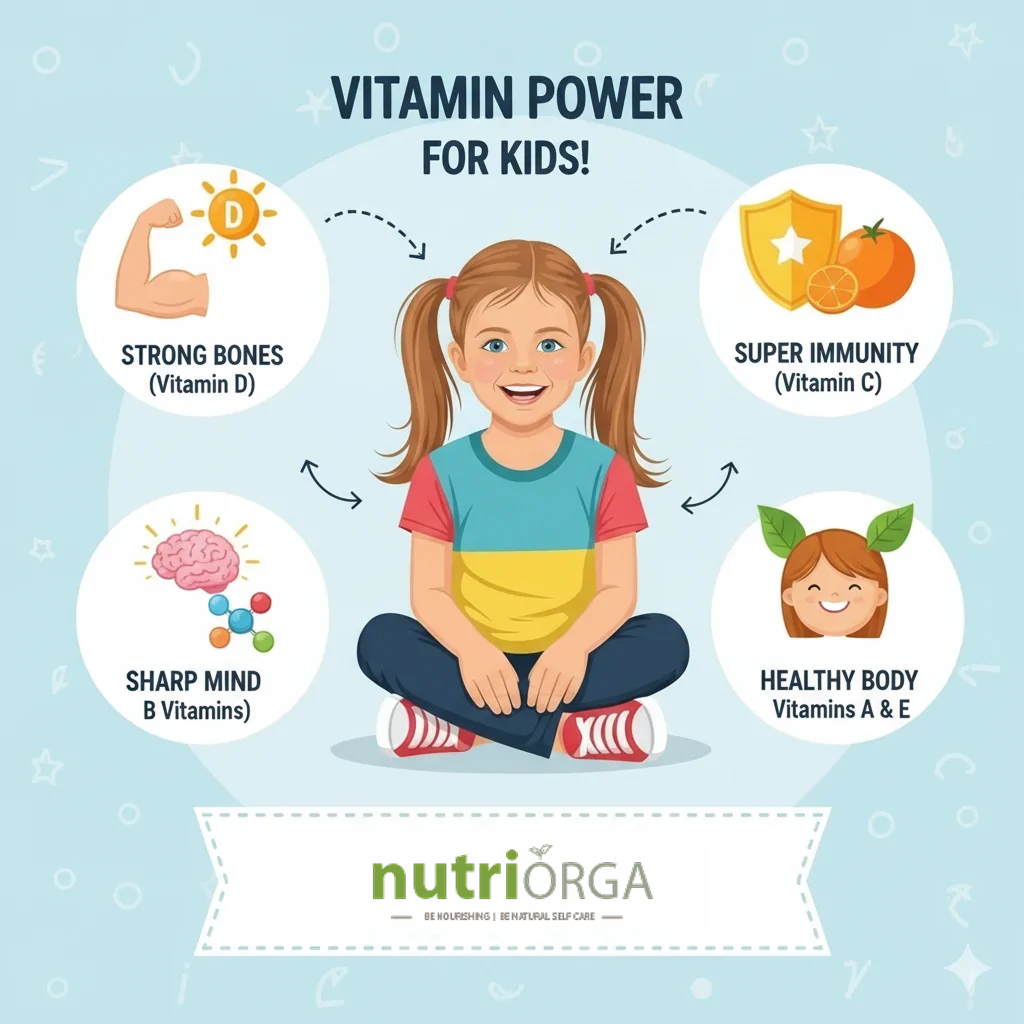As parents, it’s a common concern for us to worry and think about whether our kids need vitamin supplements or if they are eating the right food. As their food choices may change with the days, it’s a struggle on a daily basis. The parents have to balance their kids’ taste buds with the healthiest option for their growing bodies. You’ve been wondering if they are actually getting all the necessary vitamins they require from just the food alone.
Now, that’s the time when the supplements make your life a little easier. Supplements do not work as a replacement, but their function is more likely a safety net for kids when they are not getting enough sunlight or go through a picky phase.
We have made it easy for you through this blog to understand why health supplements matter, which are the important ones, and when we really need them.
Why Are Vitamins Important for Kids?

The tiny nutrients found in our body are the Vitamins. They cannot always make it on their own. They play a huge role in keeping the children’s health intact. Compared to adults, kids grow faster than they do. This is the point when their bodies are getting prepared. They get prepared to build bones, teeth, muscles, and brain connections as well, but at a quicker pace. So, if they don’t get enough vitamins, it prevents children from reaching their full potential.
Related Pick: Best Supplements Brands in Pakistan
In order to keep the immune system strong, vitamins are responsible for catering to all such purposes. Any deficiency of vitamins can lead to sickness, slow healing from wounds, or weakness. The vitamins like A, C, D, and E have a main job to protect you against infections. Thus, it helps in boosting the recovery. There are many other functions that the vitamins have, linking with your smooth skin, eyesight, and the proper functioning of organs.
Benefits of Vitamin Supplements for Kids

Nutritional supplements, when used properly, tend to offer several benefits as they fill the nutritional gaps. The multivitamins have the ability to prevent certain health issues. There are some nutritional supplements needed for the functioning of the immune system.
However, it helps in reducing the risk of infection or recovery. The other benefits of it involve aiding growth and cognition. A deficiency will lead to delays. It also has a role to work as a safety net in certain situations or conditions.
However, the important vitamin supplements for your kids involve Vitamin A, C, D, Vitamin B-Complex (esp. B6, B12, plus B1, B2, folate, etc), and Vitamin E.
Signs of Nutrient Deficiency in Children
One needs to watch out for the alarming symptoms in their children. The common warning signs of nutrient deficiency in kids include the following:
- Lack of energy, fatigue, or weakness
- Weak immune system(slow recovery from illness, frequent infections)
- Weight gain or poor growth.
- Deformities, soft bones, or pain in bones.
- Hair, nail, and skin issues, causing brittle nails or hair, dry and flaky skin.
- Problems with vision.
- Mood changes (low concentration, irritability, etc.)
Noticing one or more than one for some time, it’s recommended to seek a pediatrician.
Frequently Asked Questions
Aid in growth? The answer is a ‘yes’, indirectly. If a child suffers from a deficiency, limiting his/her growth. The supplement can remove that barrier so normal growth resumes. But food supplements can’t compensate alone for a chronic poor diet or illness.
Safety? It is generally safe if taken at the dosage as per the recommendations. An overdose will bring harmful consequences, especially in the case of fat-soluble vitamins(A, D, E, K). Whereas, Vitamins B and C are the water-soluble vitamins which are less likely to build up in the body.
There are different scenarios when you can give your child a multivitamin. The following scenarios will make you decide when it is appropriate:
1. If your child has a restricted diet, this increases the chances of reducing the intake of specific nutrients.
2. If picky eating persists for years.
3. Seasons or areas with less sunlight(for vitamin D).
4. When a healthcare professional prescribed you(for instance, a dietitian or a pediatrician)

Conclusion
The vitamins are extremely essential building blocks in a child’s whole life in maintaining their overall health. Mostly, children with safe sun exposure and a balanced diet fulfill the majority of their needs.
However, many children’s supplements have to serve as safety nets. Before going for any supplement, it is good to seek advice from your health professionals.

